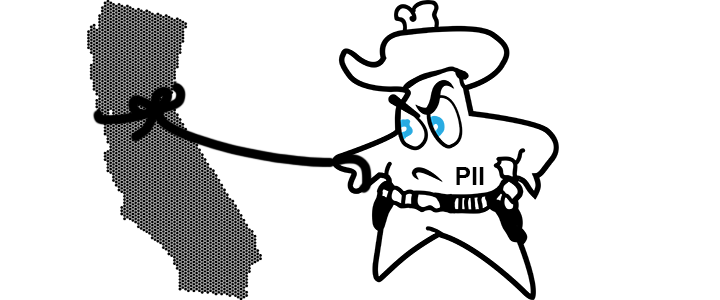Marketer’s Guide to The California Consumer Privacy Act of 2018

I remember a comment that stuck with me from over 20 years ago from my interviewer at a large Minnesota agency. I was interviewing for a position in their “interactive” department. She said, “The internet is nothing but information clutter” and proceeded to have a very negative perspective of the internet in general. I’m guessing she was overworked, but nonetheless the comment stuck with me. And holy moly, I hope she got out of digital a long time ago because if it was information clutter 20 years ago, I can only imagine her perception now. Needless to say, her comments didn’t dissuade me from digital, and my tendencies in life (business and personal) to bring organization and structure to the disorganized and unstructured, haven’t changed.
The “wild wild west” of data privacy before regulation was disorganized and unstructured. It is slowly but surely becoming more regulated, organized and structured. Data privacy will become more regulated, organized and structured as people file lawsuits because of the misuse of their personal information for financial gain without their consent. Lawsuits could result from data breaches, the sale and misuse of third-party data, collection of smartphone data without disclosure, and more recently, collection of personal information/data without prior disclosure and sharing that data. These issues will now have a price tag.
We have previously discussed how the California Consumer Data Privacy Act of 2018 will impact marketers in 2020 when the law goes into effect. It impacts all marketers who have California residents in their database, but what is it actually supposed to do? The California Consumer Privacy Act is designed to:
-
- Protect your right to tell a business not to share or sell your personal information.
- Give you control over the personal information that is collected about you.
- Hold businesses responsible for safeguarding your personal information.
There have been a lot of discussions about the new law and what it lacks, which makes any marketer scratch their head about what the new law actually includes and what loopholes to look out for.
The “The California Consumer Privacy Act of 2018” Basics
Grants a consumer:
- A right to request a business to disclose the categories and specific pieces of personal information that it collects about the consumer,
- A right to request a business to disclose the categories of sources from which that information is collected,
- A right to request a business to disclose the business purposes for collecting or selling the information,
- A right to request a business to disclose the categories of third parties with which the information is shared,
- A right to request deletion of personal information,
- A right to request that a business that sells the consumer’s personal information, or discloses it for a business purpose, disclose the categories of information that it collects and categories of information and the identity of 3rd parties to which the information was sold or disclosed, and
- The right to opt out of the sale of personal information by a business and would prohibit the business from discriminating against the consumer for exercising this right.
Requires a business to:
- Make disclosures about the information and the purposes for which it is used,
- To delete personal information upon receipt of a verified request, and
- To disclose details of the categories of information that it collects and categories of information and the identity of 3rd parties to which the information was sold or disclosed in response to a verifiable consumer request.
The requirements for businesses make sense. It basically will require them to add additional language to their privacy policy, cookie policy or terms and conditions to educate consumers about their rights when accessing their web properties, services or web apps.
California Consumer Takeaway
The takeaway for California consumers is that the information collected on them won’t stop unless they take an action to exercise their rights. The act will not prevent a business from collecting data and sharing that information unless the consumer has exercised their rights to opt out previously.
I know one thing is for sure, only a consumer with a LOT of spare time could possibly keep up with the number of requests for information or to opt out from all businesses they visit online and/or offline. Businesses are banking on that too.
